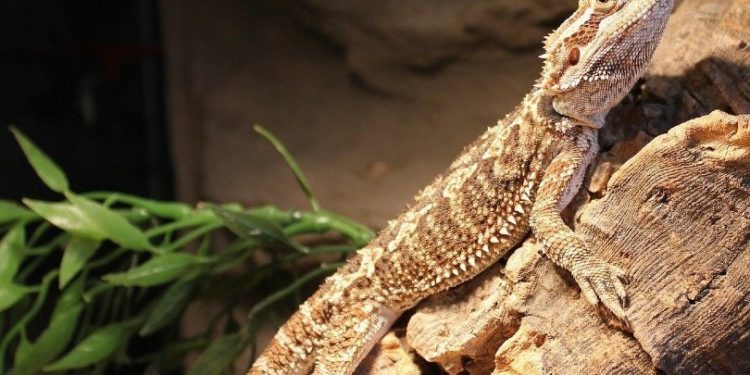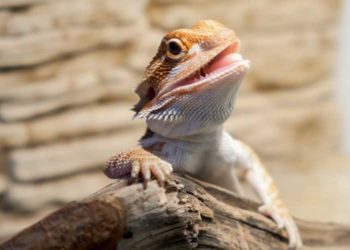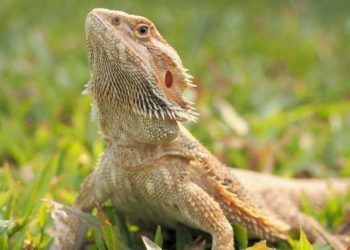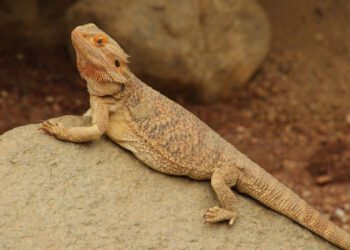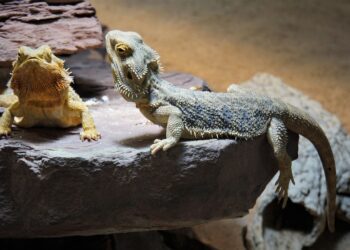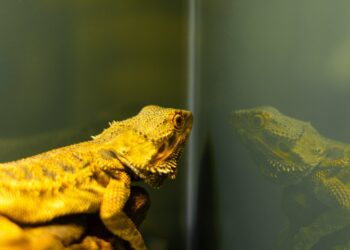Yes, bearded dragons can safely eat basil as long as it is fresh and finely chopped as part of a varied diet. It is a culinary herb mostly used in Thai, Italian, Indonesian and Cambodian cuisines has a sweet and pungent smell. Basil is a kind of leafy herb which is rich in antioxidant properties and basil is a good addition to serve the bearded dragon.
But the condition is that it should be served only once or twice a week because excess basil can make your dragon sick due to its acidity and high content of calcium so it should not be considered as a staple food. Before serving Basil to the bearded dragon, you need to know about its fat, calcium, phosphorous, protein, and fiber content. Among all, the most important is the calcium to phosphorous ratio.
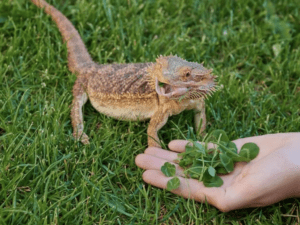
Contents
Nutritional Information of Basil
Basil is a herb that has great nutritional value and contains several nutrients like calcium, iron, vitamins, and has antioxidants and antibacterial compounds that can optimize beardie’s health.
All these nutrients help to improve immunity, digestion, strengthen muscles, tissue growth as well as it is anti-inflammatory that contains antioxidants which can battle common sickness of the lizard and cancer too. So basil is a portion of super healthy food for your bearded dragon. Here are some nutritional values of this herb.
- Protein – 3.3g
- Fiber – 1.6g
- Sugars – 0.3g
- Water – 93g
- Energy – 22kcal
- Phosphorous – 55mg
- Calcium – 175mg
- Vitamin A – 265µg
- Vitamin C – 18mg
- Vitamin K – 414µg
- Ca:P – 3:1
Calcium to Phosphorous Ratio in Basil
When you feed new food to your dragon, the one thing that is often overlooked is the calcium to the phosphorous ratio that the food contains. The ratio of calcium to phosphorous which is considered healthy is that it must contain at least an equal amount of calcium and phosphorous or more calcium than phosphorous. So the calcium to phosphorous ratio in basil is 3:1which is considered a healthy ratio and safe for bearded dragons.
Bearded dragons require more calcium than phosphorous in their diet. If calcium content would be high in their diet, they can fall sick. The reason behind this is that phosphorous can bind to calcium and prevent the calcium to be absorbed so that beardie can use it later.
How Often Can Bearded Dragon Eat Basil?
Though basil is good from a nutritional point of view but still cannot be given on daily basis to your bearded dragon. Here are the reasons.
Too Acidic: Basil contains several acids like rosmarinic, chicoric. Too much acid in the diet of a bearded dragon is harmful. As long as you give basil once or twice a month then it will not affect your bearded dragon.
Too Calcium: Calcium content should be less in the diet of bearded dragon and the effective ratio of calcium to phosphorous would be 1:1 or 1:2. But in the case of basil, this ratio is 3:1 which contains too much calcium so it should be given once a month otherwise too much calcium can cause bone problems to your pet dragon.
Benefits of Eating Basil
- Basil provides a good amount of Vitamin A, C, and K especially Vitamin K which is considered an important nutrient for blood clotting and also for bone density.
- As it has healthy calcium to the phosphorous ratio which makes it a good option because it provides a decent amount of calcium which makes bearded dragon’s bones stronger.
Risks of Eating Basil
- Because of its highly acidic nature and too much calcium content it can affect the health of your bearded dragon which could be difficult to cure.
Methods to Give Basil to Bearded Dragon
Serving green herbs and vegetables to bearded dragons does not require too much preparation to serve them. First of all, the most important thing is bearded dragon should provide fresh basil which should be properly washed. These herbs should be organic because pesticides are very harmful to dragons.
There is no need to cook basil as cooking will destroy their nutrients so always serve them fresh to provide proper nutrients to your bearded dragon. Also, it should be cut properly into small pieces and then mix with other veggies and serve to your bearded dragon.
Can Bearded Dragons Eat Basil Flowers and Dried Basil Leaves?
It is recommended that bearded dragon should provide fresh basil because it offers balanced nutrients but on the other hand dried basil contains potentially contains more amount of unwanted nutrients like dried basil contains more sugar, carbohydrates, fats, and phosphorous. So it is good if dried basil should not be given to your lovely pet.
Also, basil flowers are safe and rich in nutritional contents and can be safe. Therefore basil flowers are also a good option to serve the bearded dragon.
Other leaves that can be offered to the bearded dragon
Many herbs can be added to the diet of your bearded dragon and add variety to the food. Like basil, not all the herbs are safe for your dragon but if they should be provided on an occasional basis then they will be a good option that offers a new taste to the dragons and provides a variety of food to them. Other herbs that can be offered to your dragon are:
- Parsley
- Oregano
- Rosemary
- Cilantro
- Lavender
- Fennel
- Sage
- Thyme
Conclusion
So you know about the ins and outs of feeding basil to your bearded dragon and about the methods to provide them. Basil should be provided fresh, finely chopped in small pieces, and should not be cooked. This herb should be given occasionally like once or twice a month in a small amount like serving salad in the diet.
Make sure while feeding or handling your beardie, your hands should be washed properly because bacteria and parasites could be more harmful which can affect their health.
More:
Can Bearded Dragon Eat Peppers?
Can Bearded Dragon Eat Cilantro?


